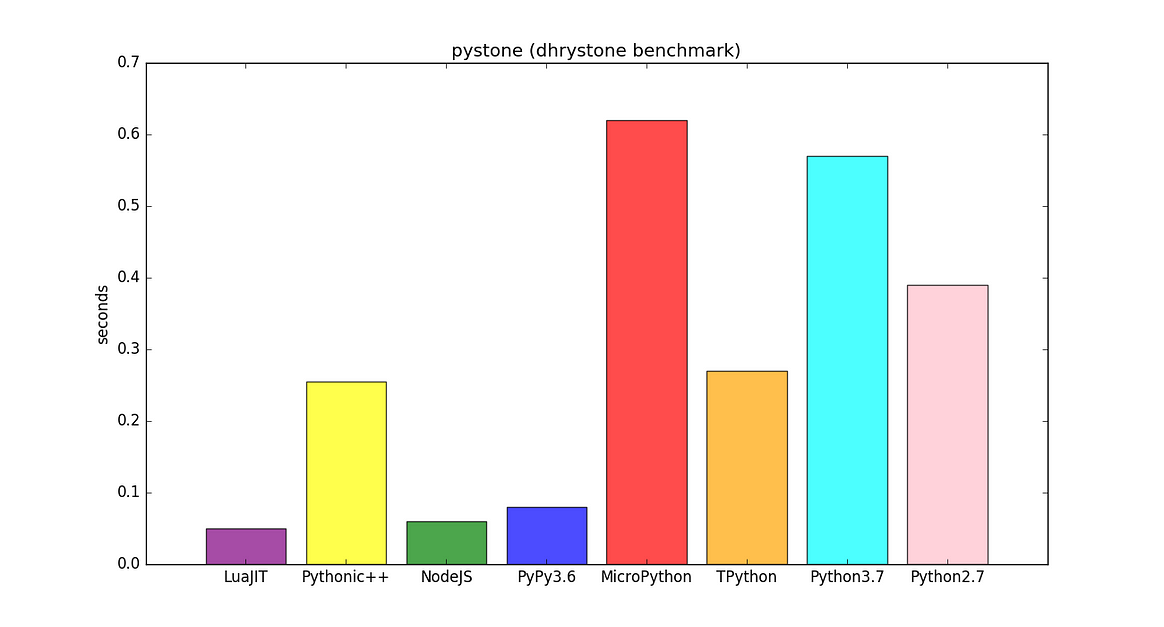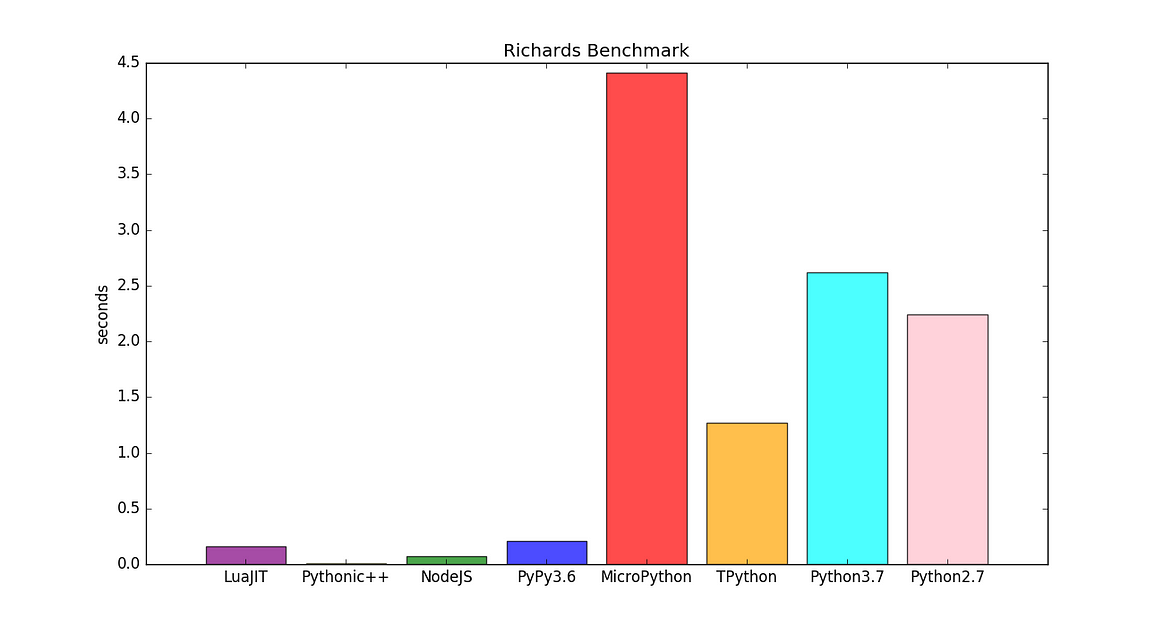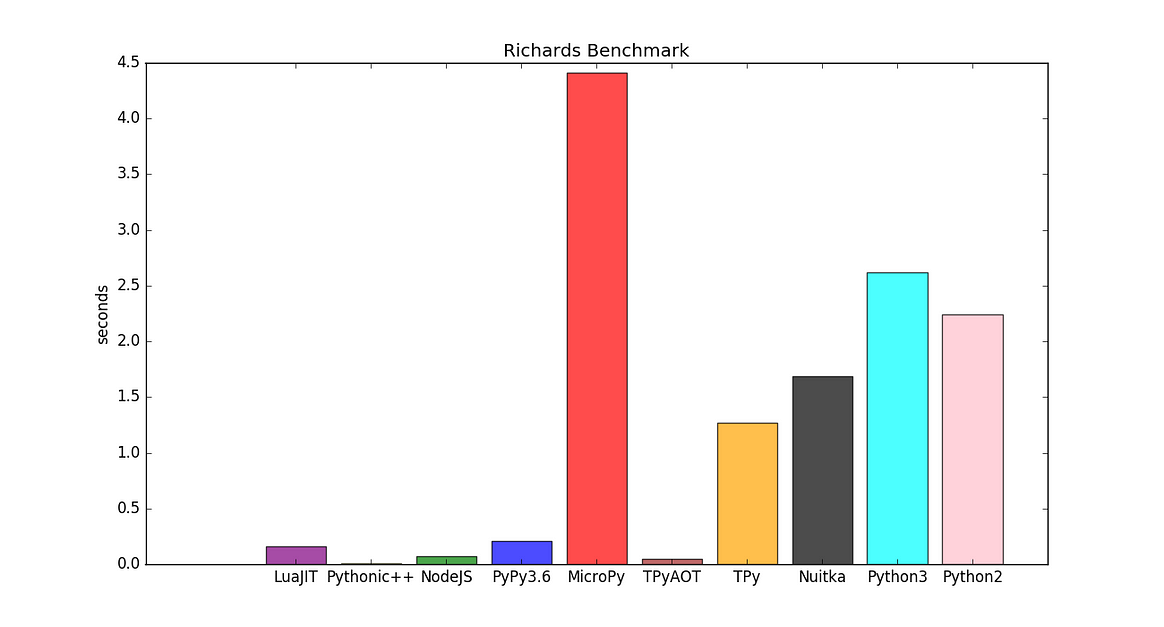A tiny GIL-less python implementation (based on TinyPy), written in Pythonic++ (a dialect of C++). TPython++ is used by Panjea.com to translate Pythonic++ to WASM. http://www.panjea.com
Ahead of time compiled Python must follow strict rules inorder to be conformant for automatic translation to C++. These rules include:
- each dictionary can only contain a single key type, either: a single char (in single quotes),
or a string (in double quotes), or a number. A dictionary will become
std::unordered_map<T,tp_obj>. - lists are faster when they only contain a single type, a list of strings will become
std::vector<std::string> - sets can only contain numbers or strings.
- functions and methods must be defined in their dependency order, if function B requires function A, then A must be defined first.
- when the translator fails to determine the type of a variable for automatic unwrapping, you must use the
@unwrap(foo=TYPE)decorator to define the variable type. - when interfacing with C++, and automatic templates fail to compile, you can type your variables using the
@typedef(foo=TYPE)decorator. - classes are automatically exposed to non-AOT code, to call a method on an AOT class, you must define that method before the
__init__constructor. - AOT class instances are not garbage collected, you must manually delete them when no longer used.
- a single letter in single quotes is a
chartype, double quoted strings areconst char* - white space matters, use tabs for normal indentation, and when the parser fails, adding a space in and around function calls can fix the problem
- lines that end with
;are considered to be raw C++, and the parser will perform less translation magic on them. - by default all members of a class are of the type
tp_obj, which is a union of the interpreter types, if you need to store a pointer to an external C++ object, you must cast it to(void*)when you assign it to the member. - a wrapped pointer to an external C++ object can be unwrapped using the
unwrap(T,ob)macro. - functions that do not define a return type, will have
tp_objas their return type, by default returningNone
Front end build script aotpy.py will try to ahead of time compile your python script,
otherwise it will fallback to compiling just bytecode.
example:
cd tpythonpp
./aotpy.py benchmarks/recursive_fib.py
TinyPy is the smallest Python implementation ever, just 64K, created by Phil Hassey in 2008. TPython++ is based on RainWoodMans fork of TinyPy. https://github.com/rainwoodman/tinypy The AOT translator is based on a higher level form of Pythonic++ syntax. The TPython interpreter itself is written in low level Pythonic++
https://medium.com/@judge_raptor/2x-faster-than-python-7c15ab0a9286
https://medium.com/@judge_raptor/77x-faster-than-rustpython-f8331c46aea1
https://medium.com/@judge_raptor/aotpy-52x-faster-than-python-2bda98ab5e57
https://medium.com/@judge_raptor/escaping-the-interpreter-5675dfda15d3


